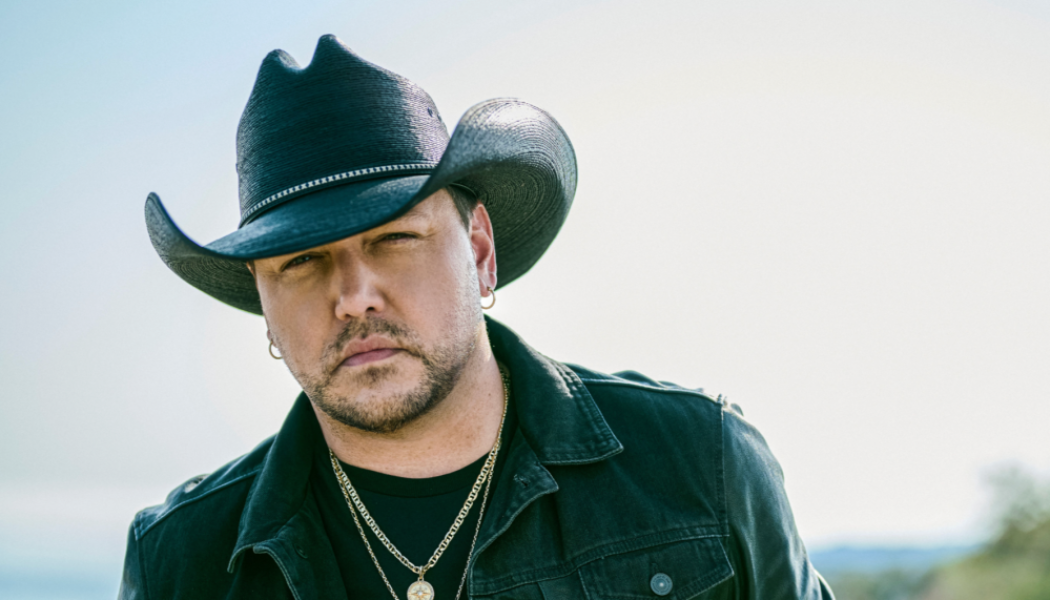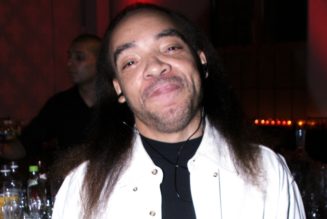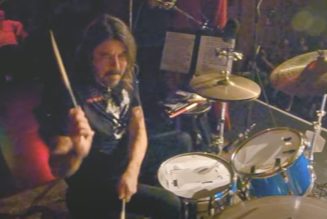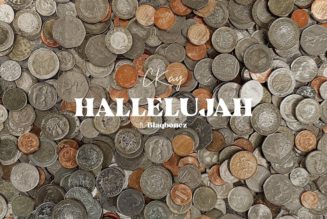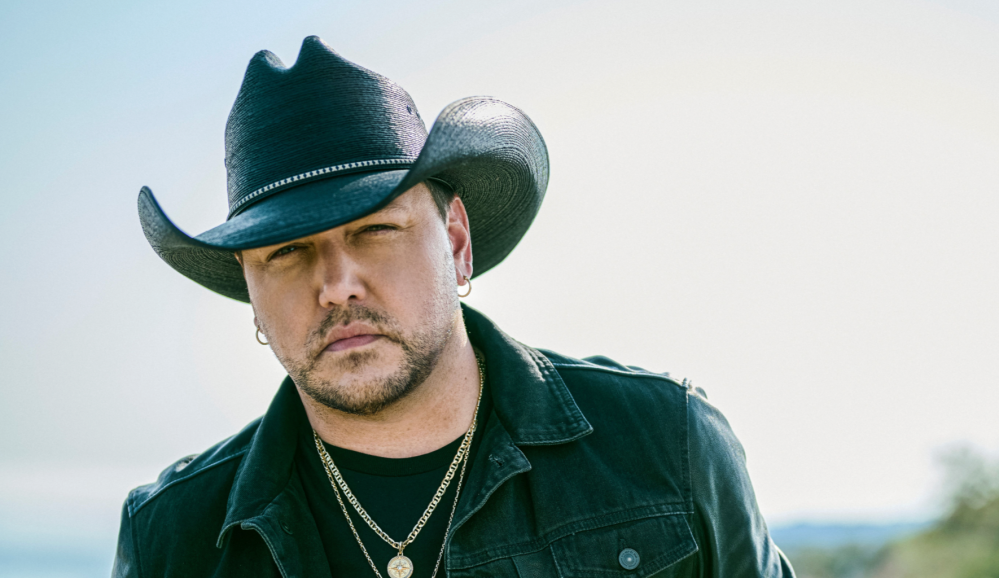
If country music used to pride itself on being about “three chords and the truth,” the increasingly belligerent superstar Jason Aldean has a different idea of what the genre should represent: two chords and a beating, or maybe a shotgun blast.
Aldean’s “Try That in a Small Town” is close to being the most cynical song ever written about the implicit moral superiority of having a limited number of neighbors, which is saying something, given how many attempts to write the Great American Small Town Anthem are generated in a single year. At least most of the others at least put up the appearance of celebrating local pride, not prejudice. But for Aldean, it’s about how tiny burgs are under the imminent threat of attack from lawless urban marauders who will have to be kept at bay by any means necessary — meaning, pretty explicitly, vigilantism.
You can just see Aldean speaking up at a town council meeting to keep the interlopers out: First, the outsiders visit your charming off-the-interstate vintage stores, then they’ll be back with their BLM protests and Molotov cocktails. Ban antique shops now, before it’s too late.
“Try That in a Small Town” was risible enough as a single, but in case anything about its lunkheaded songwriting felt like it was left as subtext and not made explicit, Aldean has released a music video for the rising hit. It, too, is in the business of handing out black eyes… to country music, that is, much more than any imagined invaders.
The setting, outside the Maury County Courthouse in Columbia, Tennessee, has proven upsetting for some who know or learn the history of the building. It’s where, in 1927, a white lynch mob dragged a young man named Henry Choate through the streets behind a car before finally hanging him from a second-story courthouse window. Let’s give Aldean and video director Shaun Silva the benefit of the doubt and assume they had not indulged in a history lesson when they decided the same frontage where a Black man was murdered in front of a crowd would be a good place to alternate projected footage of protesters being put down with a draped American flag. (Hard to blame anyone for thinking that this history did show up in Aldean’s or the filmmakers’ web search on the location, but imagining that they knew that and proceeded anyway, as a known dog whistle, is… just tough to contemplate.)
But leave aside the uncomfortable connotations that may be there by accident. What do the song and the video mean to say, outrightly? Considering the single itself, first, it’s been written (not by Aldean but by Kurt Allison, Tully Kennedy, Kelley Lovelace and Neil Thrasher, none having their proudest moments here) in true modern-day “making a list” songwriting style. Only, instead of being a list of what we like about small towns (water towers, corner stores, holding doors open, lack of stoplights, saying “ma’am”), it’s a list of hellishly dystopian tropes about city evils that seems half-borrowed from Hank Williams Jr.’s “A Country Boy Can Survive,” half-borrowed from the Book of Revelation.
“Sucker punch somebody on a sidewalk / Carjack an old lady at a red light / Pull a gun on the owner of a liquor store / You think it’s cool…” (The writers really have a bead on what’s hep with the kids in Williamsburg these days.) Soon enough, it’s a Second Amendment anthem filtered through a prism of deep paranoia: “Got a gun that my granddad gave me / They say one day they’re gonna round up / That shit may fly in the city / Good luck trying that in a small town.” Who is the mysterious “they” that is coming to confiscate all the shotguns in the deep South? Is it Biden? Maren Morris? Nicolae Carpathia?
But the most heinous thing the small towns of today have to dread, and ward off with threats, is that somebody will “stomp on the flag and light it up.” Of all the tropes from bygone days that country songwriters are nostalgic for, it’s surprising to see flag-burning join the list. Jason, 1994 called, and it wants its straw man back.
Also: “Cuss out a cop, spit in his face…” This never happens in a small town? Aldean can be excused for not knowing — he’s never lived in one himself — but if he thinks guys outside of big cities have never sworn and spit at cops as they’re getting tossed out of somewhere… has he ever been in a bar?
But the music video makes it clear that the singer is not thinking of the town drunk when he sings that line. He’s thinking about demonstrators, the prime bogeyman of Silva’s noxious video. It’s easy to imagine, if you keep in mind the history of so many country artists tweeting against the Black Lives Matters protest during the pandemic, that this is what Aldean or his director have in mind when they make this the most focused part of the video. Maybe it’s not that, exactly: The one Fox headline that is projected on the courthouse, about Georgia declaring a state of emergency, refers to earlier this year when protests rose up following environmental demonstrator Manuel Esteban Paez Terán being shot 57 times and killed by police, who alleged he wounded an officer. That background may be incidental, but the message is clear: Chaos has already infiltrated Georgia. It could be coming to your no-stoplights town.
And the most dangerous part of the video — the part that may wipe the smirk off your face if you’re just focused on how clumsy the song is — is how it conflates the act of protesting with violent crime. Leading a march and getting in a policeman’s face is on the same level as rioting, or carjacking grandma. Want to vociferously unleash an unpopular opinion in a small town? “See how far ya make it down the road,” he sings. Where have demonstrators heard that kind of language before? Were there some who never made it home, after hearing that kind of a threat? I don’t have any trouble imagining Jason Aldean hates white protesters as much as he hates Black ones, but… we’re not very long past that exact language being very specifically directed at people of color. Or, let’s be honest, past it at all.
Some conservative Aldean defenders have been quick to say “the libs” are overreacting to this song because they’ve already been primed to make him into a progressive villain after his past stands against vaccines, transgender youth and Democrats generally. (Leaving aside the trans issue, which seems to be more his wife’s thing, he told his audience he didn’t want to see anyone wearing a mask, and posed his kid in a line of youth-wear with the emblem “Hidin’ from Biden.”) And some have excused this as a fairly harmless statement that is part of a don’t-tread-on-me country tradition that existed long before Williams’ “Country Boy,” extending further back even than Merle Haggard’s “Fightin’ Side of Me.”
Senator, I met Merle Haggard… studied Merle Haggard… knew Merle Haggard. You’re no Merle Haggard. (I’ve also done cover stories on Aldean, by the way. Nice enough guy, when he’s not trying to ramp up his bellicose bona fides.) Long conversations can be had about — and multiple doctoral theses have been written on — Haggard’s politics during the Vietnam era, and after, and how serious he was or wasn’t about “Okie From Muskogee.” I wrote about this and other topically contentious moments in country music history in my book “Rednecks and Bluenecks: The Politics of Country Music.” I love all those songs, just as I have an appreciation for anyone who expresses a reasonable, interesting sociopolitical viewpoint in country music or its offshoots, whether they’re coming from the left side or the right. But with a Haggard, it’s necessary to look at the whole of his catalog and the arc of his career. And in that, you’ll clearly find: He was a lover, not a fighter. Someone with a tender conscience, on top of an occasionally feisty (and certainly mischievous) side. A star who cared about, and sang about, racial sensitivity and justice. Dare I say it: A uniter, not a divider.
Jason Aldean, if he doesn’t turn things around, will be known for staking his claim on divisiveness… for doing his part to foster us vs. them. The “what about…” crowd may respond: What about Maren Morris, his and his wife’s recent nemesis, on trans issues? You can hate what she’s said, as things have gotten heated, but when you look at the music itself, she’s operated in a spirit of open-heartedness when she’s addressed topical things at all, whether in her anthem-for-the-next-generation “Better Than We Left It” or her can’t-we-all-just-get-along duet with Brandi Carlile, “Common,” where she advocated for finding the values we share with politically opposed neighbors over emphasizing where we differ. Try to imagine Aldean singing a song with that same conciliatory, welcoming spirit. It’d be nice to think he has it in him. But if the events of the Route 91 festival didn’t grow a spirit of overwhelming compassion in him, it’s hard to guess what will.
The most cynical part of me wonders if this is in part Aldean’s reaction to not getting the kind of nominations or wins for country awards shows that might seem commensurate with his commercial status. (The ACMs have been kinder to him than the CMAs.) With the so-called country establishment in Nashville not showing him as much favor as country radio across the heartland has, maybe he figures that playing Mr. Nice Guy (or at least Mr. Duets-With-Carrie-Underwood Guy) hasn’t won him enough favor and so he might as well go full-on into Fuck You mode and court latent or real anger among his audience. Heaven knows that’s worked for other figures in the overall culture, more so in recent years.
But country radio needs to decide whether it wants to take his bait this time, even if it’s a foregone conclusion that “Try That in a Small Town” won’t be going within a country mile of being nominated for anything. (According to Country Aircheck, it’s been added to 125 stations, which is the majority of the panel; whether it has the wind to be a No. 1 remains to be seen.) Anything less than a full embrace would be a good sign that, though there won’t likely be many stations brave enough to ignore the song, some kind of implicit statement can come through that this is not our best and our brightest… this is not who we want to show the world we are. Let’s get back the country songs that make small towns sound inviting — even if, honestly, we could use roughly 70% less of them — and that don’t mean to set outsiders of any political or racial stripe on edge about what might be coming at their back on the way out.
And maybe later, if not now, Aldean can remember there’s a reason the CMAs’ and ACMs’ highest honor is not Troll of the Year.
